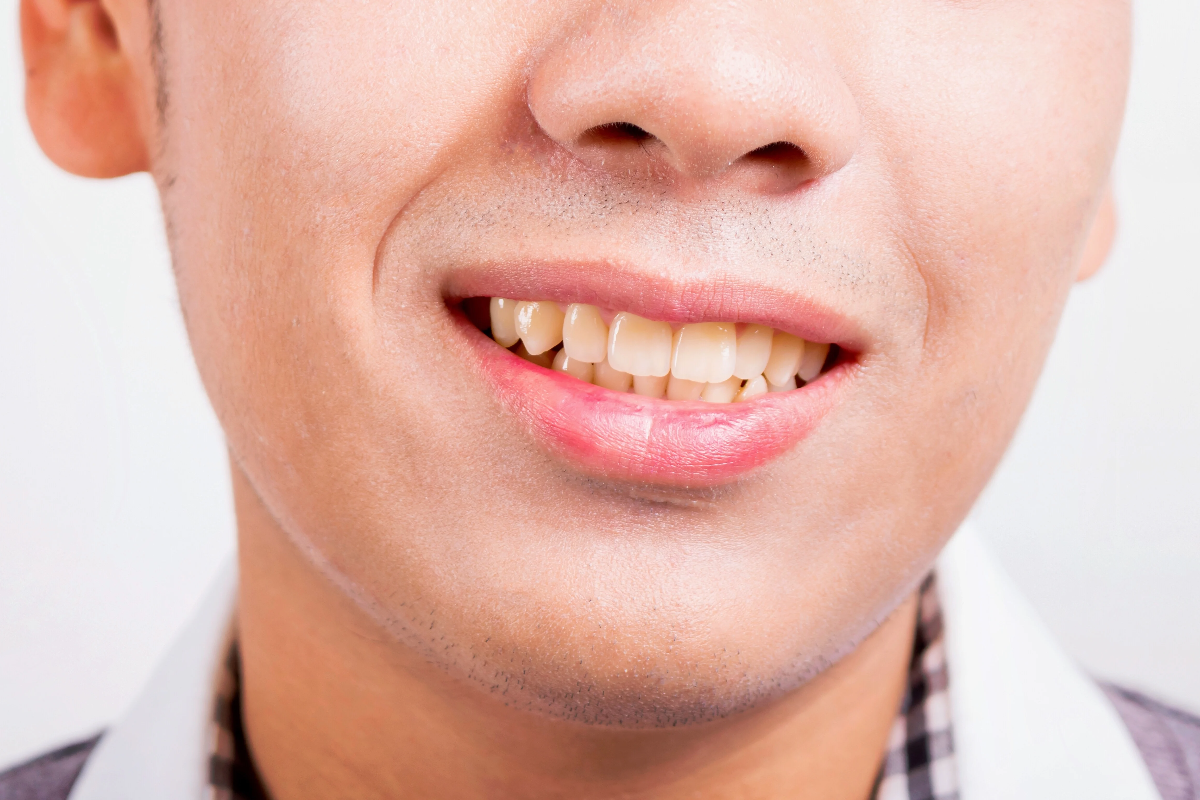
Patients occasionally choose to whiten their teeth before or after major dental procedures like root canals. With teeth whitening in Ottawa, you can remove years of stains caused by food, drinks and lifestyle choices. Whitening will not affect the process of a root canal, but you can feel more confident in your smile and make your overall smile transformation more noticeable.
How can an Ottawa Dentist Help You with Discoloured Teeth?
An Ottawa dentist near you can take a full assessment of your discoloured teeth before providing recommendations for teeth whitening. Not everyone has the same stains, so everybody has a different response to teeth whitening.
A professional can assess whether your stains are superficial (extrinsic) or located deeper in the tooth structure (intrinsic) and guide you in a way that is safe and effective for whitening treatment.
What Can a Dentist Do to Stop Future Staining?
A dentist in Ottawa can offer much more than whitening; they can offer long-term solutions to prevent tooth discoloration after a root canal or other follow-up treatment.
This could include custom whitening trays, fluoride treatments, or polishing to help you keep your teeth brighter, longer.
What Foods and Drinks Stain Your Teeth the Most?
Your daily diet is one of the biggest contributors to discoloration. Common stain-causing items include:
- Coffee and tea
- Red wine
- Cola and dark sodas
- Tomato-based sauces
- Soy sauce and balsamic vinegar
- Dark berries (blueberries, blackberries)
Avoiding or limiting these can help maintain whitening results after dental work.
Can Medications Cause Tooth Discoloration?
Yes, prescription and over-the-counter medications can change the colour of your tooth over time, but do medications cause tooth discoloration?
Yes, Common offenders are:
- Antibiotics like tetracycline (especially in children)
- Antihistamines
- Blood pressure medications
- Cancer chemotherapy chemicals
If you are concerned about medications affecting the colour of your teeth, ask your dentist before you start whitening treatments.
What are the Lifestyle Habits that Lead to Yellow Teeth?
Along with diet and medication, there are several daily habits that can cause tooth yellowing:
- Smoking or chewing tobacco
- Poor oral hygiene
- Excessive alcohol use
- Skipping regular dental cleanings
Not only will stopping these habits help your whitening last longer, but it’s also better for your oral health.
Which Medical Conditions Affect Tooth Colour?
Some medical conditions can alter tooth shade from the inside. A few examples of such conditions are:
- Enamel hypoplasia (thin enamel)
- Dentinogenesis imperfecta (weak dentin)
- Fluorosis (high levels of fluoride in childhood)
- Jaundice in infancy
If discoloration is due to health reasons, your dentist may suggest cosmetic treatment alternatives like veneers instead of whitening.
What Are the Causes of Intrinsic vs. Extrinsic Tooth Stains?
- Extrinsic stains: On the tooth surface, caused by food, drink, and smoking, these can be removed with whitening.
- Intrinsic stains: It is found inside the tooth and are caused by trauma, certain medications, or developmental issues. Often need alternative cosmetic treatments.
A dentist can determine which type you have to choose the right treatment.
Wrapping Up!
If you’re getting a root canal and want to brighten your smile, professional whitening might be an option for you. Your dentist can look at your tooth, examine the cause of discoloration, and recommend safe solutions that offer the longest-lasting results.
Get the smile you deserve. Contact Dr. Sirwan Dental to book a whitening consultation so that you can get dental advice, as well as look forward to a healthy, good-looking smile.
FAQs
How long does teeth whitening last?
Teeth whitening results last from 6 months to 2 years, depending on your oral care habits. Maintaining your oral hygiene activities and avoiding eating food that causes stains can make them last even longer.
Does teeth whitening cause sensitivity?
Some patients will experience mild tooth sensitivity after teeth whitening, which is temporary and usually fades within a few days.
Can I whiten teeth with a root canal?
Yes, you can whiten teeth that have had a root canal. Your dentist will recommend the best time to do it for safe results.
Is whitening safe for sensitive teeth?
Teeth whitening is safe when done with gentle products and shorter treatment durations, which helps in minimizing discomfort when achieving good results.
How often can I get my teeth whitened?
Most people get whitening treatments once a year. For consistently bright results, small touch-ups every few months can help.
